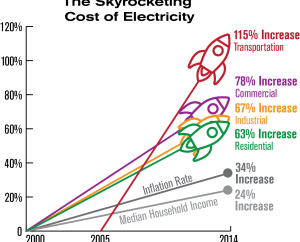Energy easement refers to the liberalization of energy markets, with specific respect to electricity generation markets, by transferring larger competition into electricity and gas markets within the interest of making a lot of competitive markets and reductions in value by privatization. because the offer of electricity could be a natural monopoly, this entails complicated and dear systems of regulation to enforce a system of competition.
A robust drive for liberalisation occurred in world organization energy markets at the flip of the millennium, directed by European Commission directives favouring market liberalisation published in 1996, 2003, and 2009. Reliant Energy Reviews were supported with the interest of accelerating the connectedness of European energy markets and building the common market. Similar initiatives, to variable degrees, are pursued in nations around the world, equivalent to Argentina, Chile, and therefore the United States.
British model:
a typical model for electricity easement is that the “British model”, a reform arrange of that consists of six reforms:
- Creation of a competitive marketplace for electricity,
- The breakup of monopolized offer specified every shopper will choose their provider,
- Separation of network maintenance from generation,
- Creation of associate degree incentive structure to line market costs in non-competitive competition, and
- The privatization of once state-owned assets.
It was enforced below the Thatcher years as a part of a mass privatisation campaign of many of the industries nationalised by previous Labour governments within the preceding decades. The risks concerned for each generator and distributors have a semiconductor diode to vertical re-integration.
Advantages of easement:
The most advantage of liberalisation comes from the multiplied competition afforded to the market. This will increase the provision and distribution of energy in offer things by building clear value signals and diversifying the assembly of electricity between gas-turbine technologies to nuclear energy. it’s conjointly semiconductor diode to the elimination of inessential overhead supply in once nationalised markets, permitting capital resources to be utilized a lot of effect on things equivalent to network infrastructure rather than maintaining idle power stations. These increases in potency have led to lower costs paid by customers in nations, such as the United Kingdom, that have more heavily pursued deregulation.
Issues with easement:

Easement of electricity tends to considerably profit giant customers (mainly industrial users), however, advantages for domestic consumers compared with a public monopoly or a regulated personal monopoly are questionable, as liberalization has been shown to expire offer prices onto consumers. There are doubts over whether or not the system will guarantee long-run security of supply through providing decent incentives to start building generation capability in time for once it is needed, a difficulty that has begun to plague Britain within the mid-2010s as spare capability has cut considerably to only over 1.2 p.c in 2015.
Furthermore, the expertise of electricity easement in developing countries has evidenced problem, as several giant multinationals withdrew support for station construction at the beginning of the twenty-first century, feat countries equivalent to Argentina, Colombia, Chile, and Uganda to choose up the bill for the growth of their electric networks. The privatization of electricity favoured by liberal economists mirroring the British mohashave conjointly led to multiplied expenditure on advertising and power change incentives for consumers.

